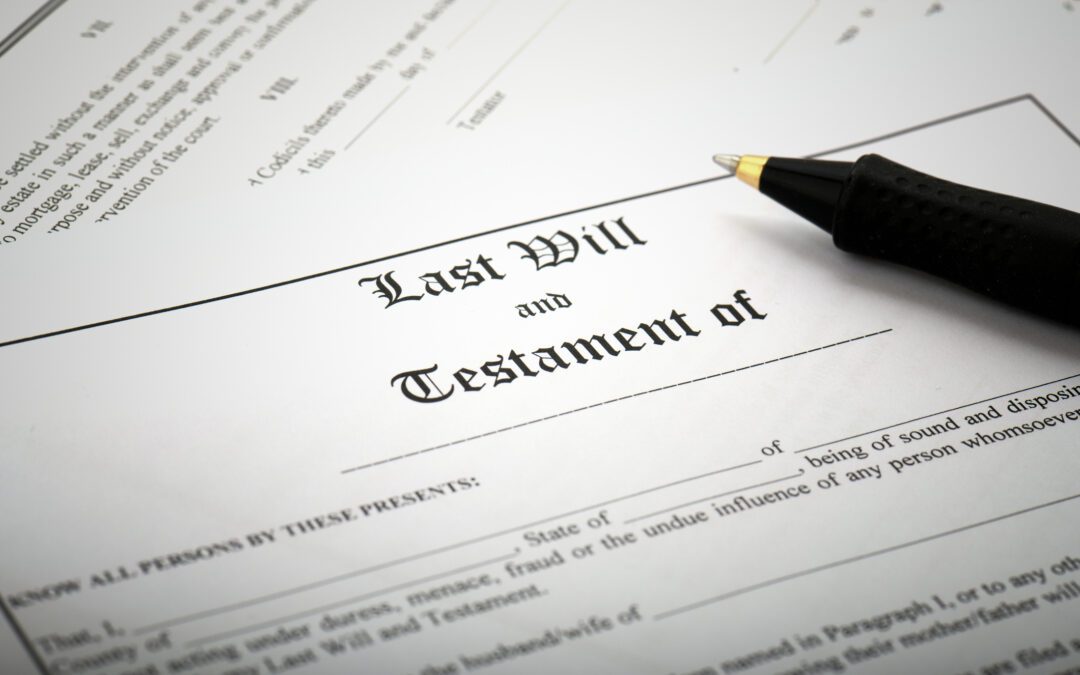
TAKING THE RIGHT STEPS TO AVOID A MESSY TRANSITION
A comprehensive estate plan is critical to ensuring that your wealth transfers efficiently to your heirs per your wishes, without getting caught in the court system or causing your loved one’s distress. While we do not draft legal documents in-house, our advisors regularly attend estate planning meetings with our clients and their attorneys to help develop the initial plan. We then revisit the plan with you regularly, or when there has been a meaningful life event. In addition, our team helps ensure that trusts are funded, transfer-on-death instructions are in place, and that any beneficiary designations stay up-to-date. Your family and your legacy are important, which is why having a detailed and well thought out estate plan is not only critical, but necessary.
WHAT IS AN ESTATE?
Your estate consists of everything you own or that makes up your individual net worth. This includes your property (house, car, etc.) in addition to other assets like your investments or assets you possess a controlling interest in.
WHAT DOES AN ESTATE PLAN INCLUDE?
- A will (defines how your assets will be divided, whom would become your children’s guardian in the event of children who are minors, who your executor is, etc.)
- A living will (defines your end-of-life preferences)
- Power of attorney (both for medical and financial decisions)
- Any trusts (provides additional details for how assets should be distributed and assists will tax strategy)
- Letter of intent (a letter for your executor or beneficiary explaining your wishes and any special requests)
WHY DO I NEED AN ESTATE PLAN?
Estate plans are beneficial to individuals with various levels of wealth. This is because they protect your assets after your death and provide for a smooth transfer to your loved ones. Without the instructions included in an estate plan, assets often end up in probate court. Unfortunately, when this happens, assets are distributed per the court’s decision, not necessarily your wishes. When property and assets end up in probate court, it creates a burden for the family members involved. They then have to battle the court system while grieving to release your assets (for living expenses, funeral costs, etc.). Having an estate plan in place can also benefit your family in other manners, such as reducing any inheritance taxes through careful planning and trusts or by protecting beneficiaries (outside influences, divorcing or controlling spouses, etc.)
While there is an obvious need for estate plans in relation to death, they are also useful while living in the event you were to become will or incapacitated. They provide the designation for your medical power of attorney in addition to providing specified individuals access to your assets to maintain your estate and handle your financial obligations.
Questions?
If you have any questions about our firm or how we can help you, one of our Wealth Management Advisors would be happy to assist you.
Related Articles
What are common areas of oversight when creating a will or trust?
Common Areas of Oversight to Consider When Creating a Will or Trust Creating a will or trust is a critical step to ensuring that your assets are distributed according to your wishes. However, there are a few areas that are often overlooked when creating an estate plan that can lead…
What are a few financial steps to take before the end of the year?
Financial steps to consider taking before the end of the year: REVIEW YOUR ESTATE PLAN Regularly reviewing your estate plan is crucial to ensuring that it continues to reflect your wishes. Changes to your personal circumstances (life events, finances, etc.) as well as changing legal requirements, estate regulations, and updates…
What questions should you ask your aging parents or discuss with your children?
Having conversations within a family regarding financial and end-of-life topics is crucial. Open communication can alleviate anxiety for both parents and children. It can help parents feel supported and reassured that their wishes will be honored, while children can better prepare for future responsibilities. These conversations foster trust, understanding, and…
How can I ensure my assets pass efficiently to my heirs? (Part 2)
Last month, our Q&A focused on a few steps to take to help ensure your assets will transition to your heirs in a private manner without the court system getting involved. In addition, we discussed the benefits of trusts and consistently revisiting / updating your estate plan with your estate…
How can I ensure my assets pass efficiently to my heirs? (Part 1)
Protecting your assets and taking the necessary steps to provide a smooth transfer to your loved ones is important. Oftentimes, certain steps are not properly addressed, and a person’s assets end up controlled by the courts. Fortunately, for most people, there are simple steps you can take to ensure your…
What is the difference between revocable and irrevocable trusts?
In the past, we have written Q&As on how to set up your assets to pass efficiently to your heirs as well as hosted a probate avoidance webinar. Choosing whether to transfer any of your assets into trusts is part of this process and may depend on the complexity of…
What is probate and why is probate avoidance important?
On October 20th, we partnered with ThompsonMcMullan on a webinar to answer common probate avoidance planning questions. ThompsonMcMullan is a law firm with Estate Planning Attorneys located near our headquarters location in Virginia. Rebecca Bowen, an attorney with ThompsonMcMullan, presented alongside Peter Braden, one of Godsey & Gibb’s Wealth Management Advisors. TOPICS COVERED:…
What financially-related steps do I need to take after my wedding?
Wedding season is approaching quickly. With the stress of planning a wedding, it is easy to overlook certain steps that affect your taxes and finances in general. We have compiled a list of steps to help with your taxes and other financial accounts. Name and address changes AFTER WEDDING If…
Should you use a transfer on death (TOD) designation for a non-retirement account?
Many people are familiar with the need to designate beneficiaries for IRA, 401(k), 403(b) and other types of retirement accounts. What about non-retirement or “non-qualified” accounts? A Transfer on Death (TOD) designation lets named beneficiaries receive assets at the time of a person’s death. This keeps them from having to…
What are the different types of Power of Attorney?
Understanding the various types of Power of Attorney (POA) can save you from unfortunate situations. It doesn\'t matter if you’re choosing a type of POA to make decisions on your behalf or to help a loved one, understanding what each entails is critical. TYPES OF POWER OF ATTORNEY: Limited (or…










